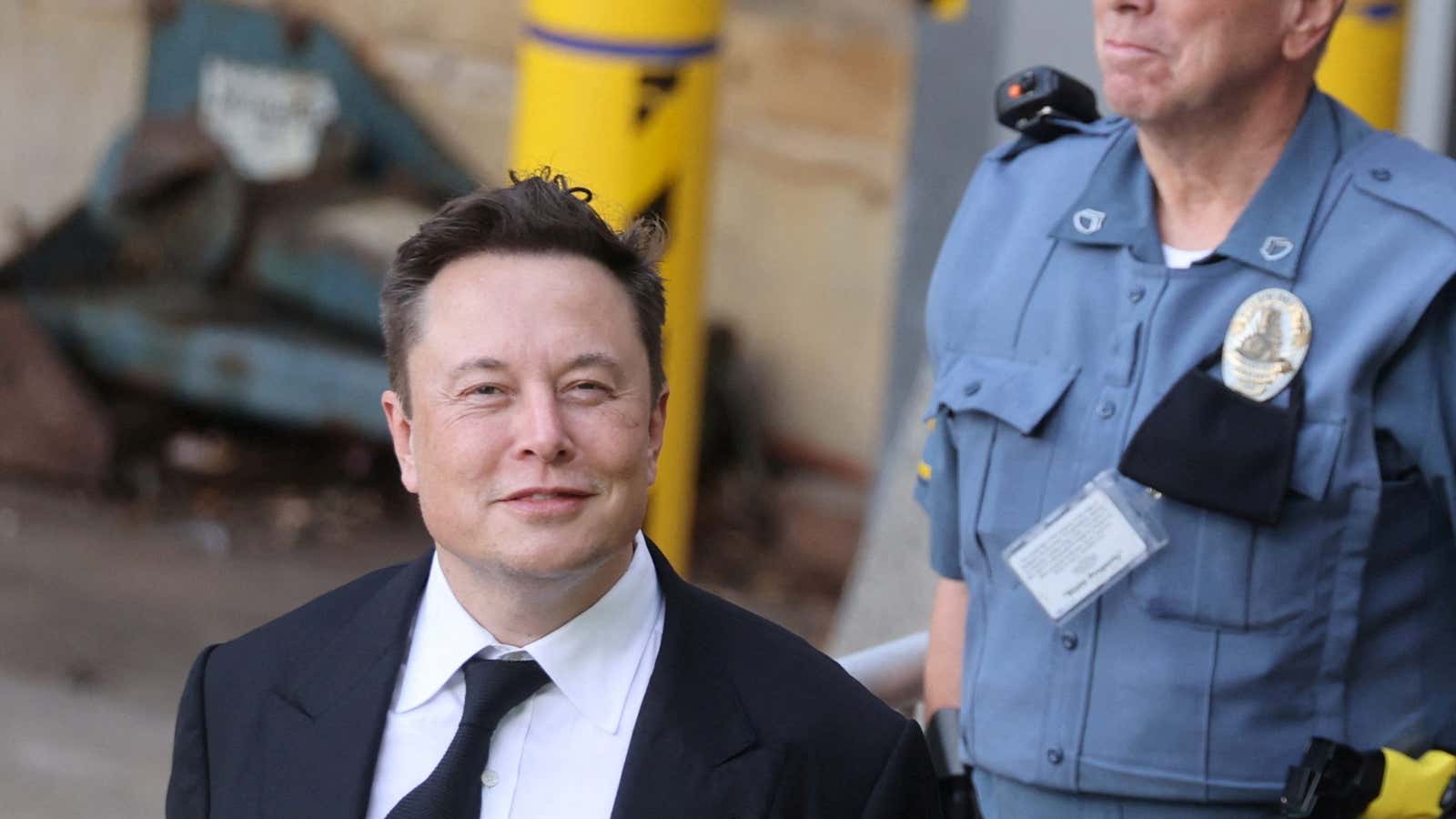Elon Musk is having cold feet about the Twitter deal—or he’s just trolling.
On May 13, Musk tweeted that his deal to buy Twitter is “temporarily on hold” until he can get more assurance that the social platform’s user base is at least 95% real people, versus fake or spam accounts. It’s a concern Musk has raised repeatedly in the past, and Twitter’s stock price fell 10% immediately after his tweet.
But after agreeing to buy Twitter for $44 billion in April, Musk might also be keen to gain leverage and renegotiate at a more favorable price, given the severe downtown in the stock market. He is also the CEO and largest shareholder at Tesla, which lost $126 billion in value just on April 26, the day after the Twitter deal closed.
Although Musk and Twitter are agreed on an acquisition, the deal is unlikely to close for a few months. And until then, Twitter has the upper hand: The company can make Musk’s life pretty uncomfortable if he decides he wants out.
Twitter has the advantage over Elon Musk
Musk may use his concern about fake accounts to renegotiate his Twitter acquisition, but it’s unlikely to give him the ability to pull out of the agreement without a penalty. “Contractually speaking, the user count would not be a basis for backing out—even if he pays the break fee—unless, possibly, the count is having a fairly severe effect on Twitter’s finances, which does not appear to be the case,” says Ann Lipton, a securities lawyer and associate dean at Tulane University Law School.
If Musk does want to walk away entirely, the “break fee” refers to a $1 billion penalty that would allow him to do just that. But Twitter can also force Musk to push ahead.
“If Musk breaches his obligations, Twitter has the right to terminate the agreement and demand a fee; but Twitter also has the right to sue to require Musk to perform,” Lipton says. “Of course, what Twitter has the contractual right to do and what it has the stomach to litigate are two very different things.”
What is clear is that Twitter has a relatively high tolerance for Musk antics, including when he tweeted insults at top Twitter execs the day after signing the deal, in which he promised not to disparage Twitter or its representatives.
